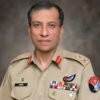KARACHI: Pakistan Peoples Party (PPP) Chairman and former foreign minister Bilawal Bhutto-Zardari has said that the Indian government under Prime Minister Narendra Modi has failed to produce any concrete evidence implicating Pakistan in the recent Pahalgam attack.
In a conversation with Indian journalist Karan Thapar, Bhutto-Zardari asserted that Pakistan had “nothing to hide,” which is why it welcomed an open and transparent investigation into the incident. “If those behind the attack were indeed Pakistani, why haven’t their identities been made public?” he questioned.
Bhutto-Zardari emphasized that both Pakistan and India must move beyond their troubled pasts, stating, “The origins of terrorism in our region are deeply tied to the historical events in Afghanistan.” He highlighted Pakistan’s significant sacrifices in the global fight against terrorism, noting that the country has lost more than 92,000 lives over the years, including over 1,000 in the previous year alone.
“Pakistan has never permitted any group to launch attacks on India from its soil,” he claimed. “We, too, have suffered immensely from terrorism, which is why we deeply empathize with those affected by the Pahalgam incident.”
He also referenced the 2007 Samjhauta Express bombing, which killed dozens of Pakistanis in India, saying that justice was never fully served. “India failed to prosecute those responsible, and even the confessions were reportedly manipulated,” he said.
Following the interview, Bhutto-Zardari took to X (formerly Twitter) to underscore his belief in dialogue and people-to-people contact. “I chose to speak to the Indian media not because I expected a neutral platform, but because I believe in the wisdom and heart of the Indian people—especially the youth,” he wrote.
He described peace as a shared goal, not just a Pakistani initiative. “It is up to the younger generation of both our countries to break away from the burdens of history. We must challenge the voices of hatred and division,” he said.
Calling for joint efforts on major regional and global challenges—such as terrorism, climate change, and inequality—he concluded: “Our generation has a responsibility to rewrite the future based on mutual respect, cooperation, and peaceful coexistence.”



